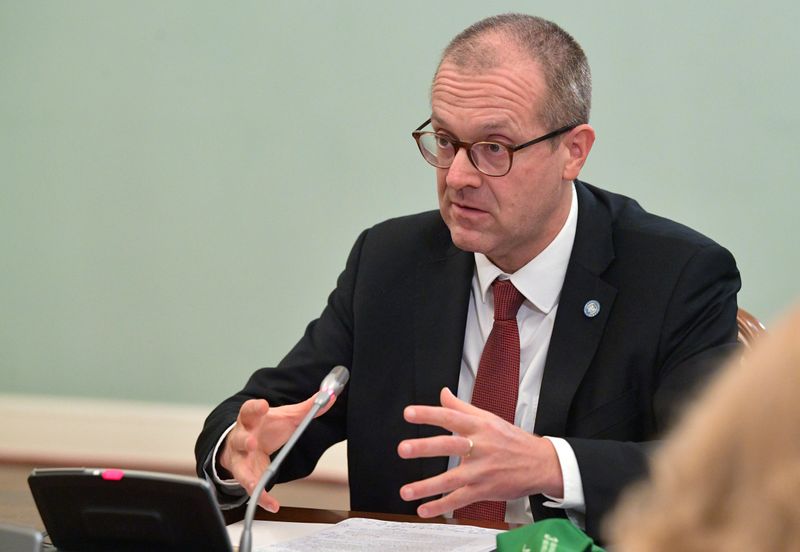By Kate Kelland
LONDON (Reuters) - Imposing tighter controls to curb COVID-19 contagion could save hundreds of thousands of lives across Europe before February as the continent battles an exponential surge in infections, the World Health Organization said on Thursday.
Urging governments to "step up" swiftly to contain in a second wave of the coronavirus pandemic, the WHO's European director Hans Kluge said the current situation was, "more than ever, pandemic times for Europe".
New infections are hitting 100,000 daily in Europe, and the region has just registered the highest weekly incidence of COVID-19 cases since the beginning of the pandemic, with almost 700,000 cases reported.
"The fall (autumn) and winter surge continues to unfold in Europe, with exponential increases in daily cases and matching percentage increases in daily deaths," Kluge told an online media briefing.
"It's time to step up. The message to governments is: don't hold back with relatively small actions to avoid the painful damaging actions we saw in the first round (in March and April)."
More than 38 million people globally have been reported as infected with COVID-19, and 1.1 million have died.
Kluge cited projections from what he described as "reliable epidemiological models" and said they were "not optimistic" for the European region.
"These models indicate that prolonged relaxing policies could propel - by January 2021 - daily mortality at levels 4 to 5 times higher than what we recorded in April," he said.
But taking simple, swift tightening measures now - such as enforcing widespread mask-wearing and controlling social gatherings in public or private spaces - could save up to 281,000 lives by February across the 53 countries that make up the WHO European region, he add.

"Under proportionately more stringent scenarios, the models are reliably much more optimistic, he said, adding: "Pandemic times do not necessarily mean 'dark times'."